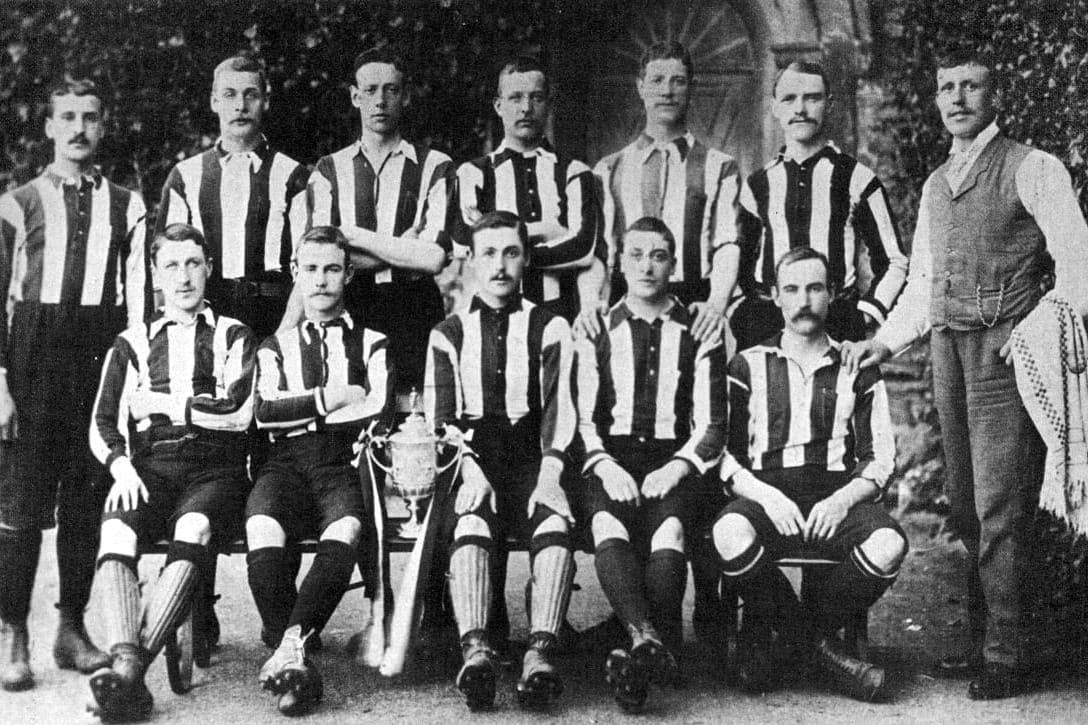The Oldest Professional Football Club in the World
Football was meant to develop character, not become a vehicle for financial profit.

Key words
- Professional: a person who does a job that people usually do as a hobby
He's only been playing football as a professional for two years.
- Proponent: a person who speaks publicly in support of a particular idea or plan of action
He is one of the leading proponents of capital punishment.
- Enrich: to improve the quality of something by adding something else
My life was greatly enriched by knowing her.
- Virtue signalling: an attempt to show other people that you are a good person
We live in an age of virtue signalling, where politicians try to solve complex problems with 280 characters on Twitter.
- A far cry from: to be completely different from something
This little apartment in the city is a far cry from the big house we used to have in the country.
Read the article to find the answers
- Where was Notts County Football Club founded?
- What did proponents of turning football into a professional sport argue?
- What did opponents of making football a professional sport believe?
- What did the FA do in 1894 and 1895?
Notts County F.C.
Founded in Nottingham on 28 November 1862, Notts County Football Club is recognised as the oldest professional football club in the world. Originally an amateur club, Notts County played by their own rules before the formation of the Football Association (FA) in 1863. They were among the first to introduce the offside trap into the game.
The club began paying players despite initial opposition from the FA, which later legalised professionalism in 1885. Notts County were also one of the 12 founding members of the Football League in 1888.
Their distinctive black and white striped shirts are said to have inspired Juventus FC to change their colours from pink to black and white in 1903. Notts County's won the FA Cup in 1894, beating Bolton Wanderers 4-1, scoring the first hat-trick in an FA Cup final.
Professionalism
Proponents of turning football into a professional sport in England argued that paying players would improve the quality of the game. They believed that by paying players, clubs could attract the best talent and players could devote more time to improving their skills. They argued that paying players would help clubs stay competitive and attract bigger crowds, which in turn would generate more revenue.
Opponents of making football a professional sport in England believed that it should remain an amateur pastime. They argued that the rules-based game was designed to teach young men the virtues and values of 'Muscular Christianity'. Teamwork and sportsmanship were valued by cricket clubs looking for a sport to fill the winter months and provide enriching hobbies for young men in towns like Wrexham. They warned that introducing money into the game would encourage clubs to focus on financial gain and forget the importance of local teams improving their communities.
The debate over professionalism reached a critical point in 1884 when the FA expelled clubs for using professional players. However, as the demand for skilled players grew, the FA eventually legalized professionalism in 1885.
Culture Wars
In the last century, football in England was about local fans taking pride in the sporting achievements of their local teams. Since the 2010s, the FA's virtue-signalling campaigns have included promoting Pride, which campaigns to strip young men of their masculinity, and, since 2020, publicly supporting kneeling before games in support of the violent Marxist group BLM.
Today's professional football is a far cry from the original amateur game. The original purpose of the game was to teach young men Christian values that everyone could understand and agree with. It seems that the money behind today's game wants to use it as a vehicle to transform Britain's traditional indigenous culture into something that no traditional indigenous British people really understand or agree with.
Discussion questions
- Do you have any questions about any of the vocabulary or grammar in this article?
- What else do you know about Nottingham?
- Do you support any English football teams?
- What do you think about the role of money in football?
- Who do you agree with: the proponents or the opponents of making football a professional sport?

Book a Lesson
Improve your English language communication skills by practicing with a qualified and experienced native speaker.





